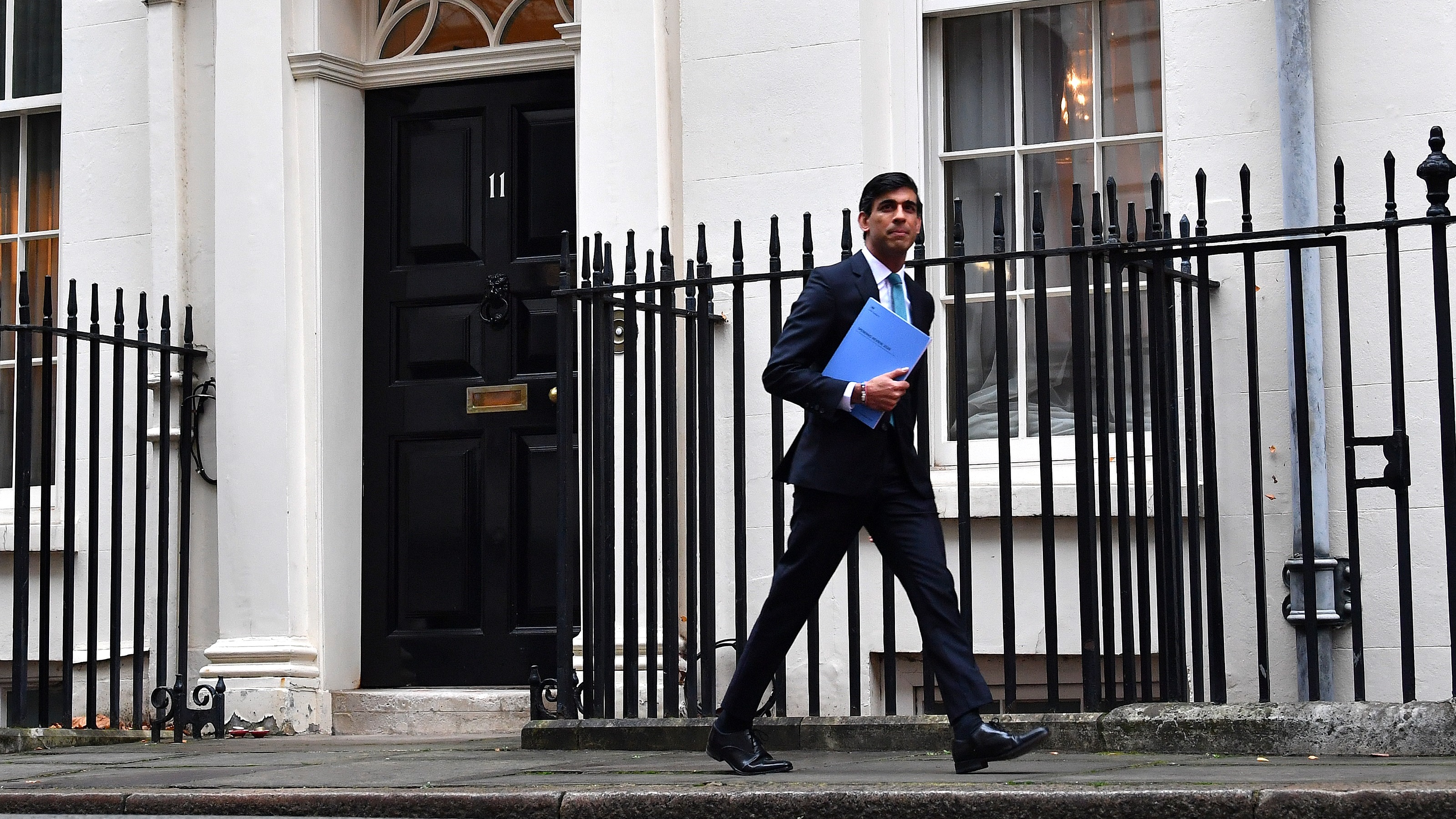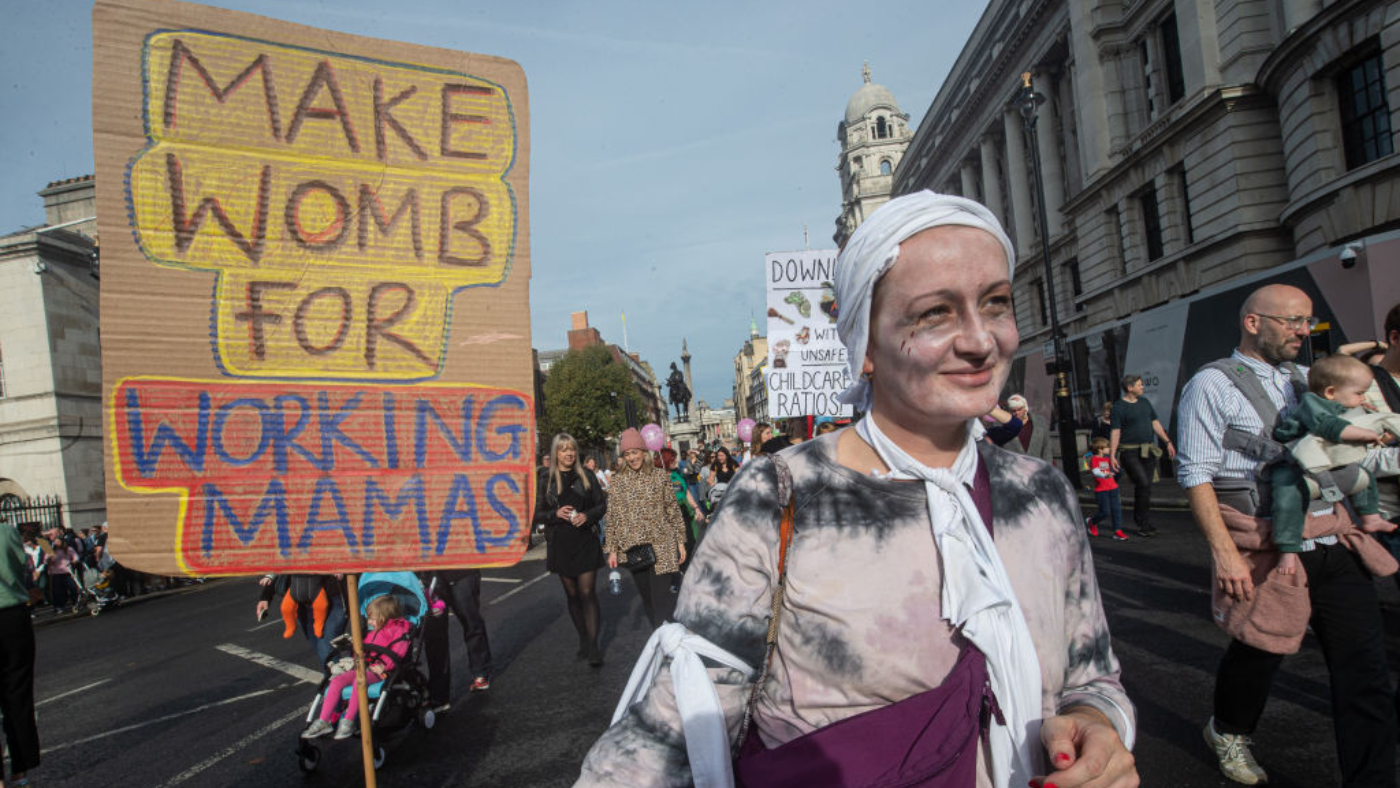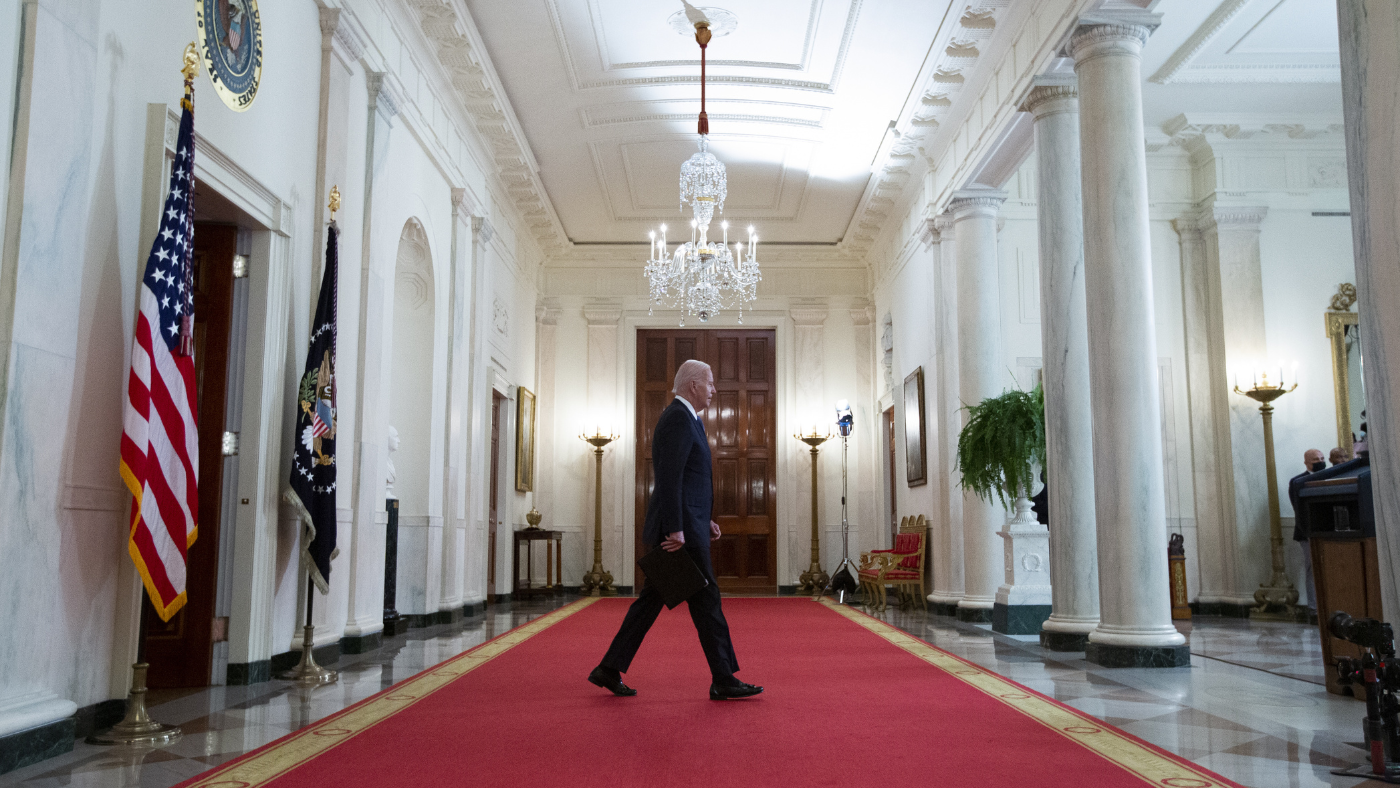‘Rishi Sunak is a lone voice for fiscal sanity in a Tory party full of spendthrifts’
Your digest of analysis and commentary from the British and international press

- 1. Rishi Sunak is a lone voice for fiscal sanity in a Tory party full of spendthrifts
- 2. Next time there won’t be a vaccine to save us
- 3. Influencers posting holiday snaps from Dubai are just doing their job, so let’s be kind
- 4. We must change to battle climate change
- 5. Department stores are far more than just shops. Their loss leaves a hole in the heart
A free daily email with the biggest news stories of the day – and the best features from TheWeek.com
You are now subscribed
Your newsletter sign-up was successful
1. Rishi Sunak is a lone voice for fiscal sanity in a Tory party full of spendthrifts
Kate Andrews in The Daily Telegraph
on the chancellor’s turf
“The Tories have a political problem. They may not feel compelled to embrace Thatcherite economics anymore, but they are fooling themselves if they think their appeal can be separated from being the party of fiscal responsibility. Are they really proposing to head into the next election with debt at historic levels and no proposals to address it? Do they really think the voters will buy that? Labour has already sought to moderate its positions from the last election. Plenty of economists will say time is on the Treasury’s side - but that’s unlikely to be providing much comfort for Sunak, who has the shadow Chancellor encroaching on his ideological turf, making the case for responsible spending.”
The Week
Escape your echo chamber. Get the facts behind the news, plus analysis from multiple perspectives.

Sign up for The Week's Free Newsletters
From our morning news briefing to a weekly Good News Newsletter, get the best of The Week delivered directly to your inbox.
From our morning news briefing to a weekly Good News Newsletter, get the best of The Week delivered directly to your inbox.
2. Next time there won’t be a vaccine to save us
David Aaronovitch in The Times
on the crisis to come
“Climate change is the most obvious example of the coming elephant. But there are others, and possibly the most urgent is antimicrobial resistance. To summarise: the wonder drugs we have relied upon since the mid 20th century to save us from dying from minor infections are losing their efficacy. The more we use them, the more microbes mutate to develop resistance. Unlike a pandemic this process doesn’t happen in one place at one moment and then spread. It’s happening all the time, unevenly, and involves large numbers of different microbes. So that amoxicillin that saved us from sepsis? It may very well not work for our kids.”
A free daily email with the biggest news stories of the day – and the best features from TheWeek.com
3. Influencers posting holiday snaps from Dubai are just doing their job, so let’s be kind
Simon Kelner in The i
on bad influencers
“How were they to know that their public, who had previously lapped up the images of a cosmetically enhanced existence, would now be so disgusted to see them cavorting on the beach? They inhabit an unreal universe, and in their minds, they were merely doing their jobs. It should be pointed out, also, that a cohort of rich Britons business people have also escaped our virus-blighted land, but have managed to stay anonymous. What the influencers in Dubai demonstrate is a lack of judgement and taste. But that’s no reason to pile in against them, when their actions are not in themselves harmful to us, and their attackers are primarily motivated by envy. The best sanction would be to refrain from buying into the images they peddle. They cease to be influencers if we resist their influence.”
4. We must change to battle climate change
Nicola Philp for The Sydney Morning Herald
on the need for unity
“Coronavirus has shown us that we can all work together to radically and quickly change our lifestyles for the greater good. We need to consider how we can prepare for a world that will be faced with regular extreme weather, unpredictable water and power supplies, food shortages and the resulting unrest that will come with these. We need to sit with the grief and fear and then work through it starting, well, yesterday. Basically, we need to be good ancestors... and the only way we can do this is together.”
5. Department stores are far more than just shops. Their loss leaves a hole in the heart
Polly Toynbee in The Guardian
on urban sitting rooms
“They belong to the vanishing public realm: they’re intimate yet convivial places to meet, havens for idle browsing, to use toilets or linger in cafes. Their closure feels like losing a park, a library, an arts or leisure centre. A break from shopping in the coffee shop with my mother, nowadays with a daughter, was a rare time to sit and stare at all those other people just like us. One fine word, ‘haberdashery’, captures their all-encompassing ethos, those button boxes and racks of Sylko cotton reels proving there is no hook-and-eye or curtain ring too small to stock. Arding & Hobbs – pride of Battersea, delight for decades of my life – was later split into a Debenhams, now shut. Every town mourns these lost urban sitting rooms. Where is Hanningtons of Brighton, Lewis’s of Liverpool, or TP Hughes of Tenby? All are engraved on the landscape of local memory.”
-
 How the FCC’s ‘equal time’ rule works
How the FCC’s ‘equal time’ rule worksIn the Spotlight The law is at the heart of the Colbert-CBS conflict
-
 What is the endgame in the DHS shutdown?
What is the endgame in the DHS shutdown?Today’s Big Question Democrats want to rein in ICE’s immigration crackdown
-
 ‘Poor time management isn’t just an inconvenience’
‘Poor time management isn’t just an inconvenience’Instant Opinion Opinion, comment and editorials of the day
-
 Triangle-headed aliens touched Goldie Hawn
Triangle-headed aliens touched Goldie HawnTall Tales And other stories from the stranger side of life
-
 How fruitful was Zelenskyy’s European tour?
How fruitful was Zelenskyy’s European tour?Today's Big Question Ukraine’s president visits Rome, Berlin, UK and Paris in bid to increase the supply of weapons from allies
-
 ‘March of the Mummies’: can people afford to have children?
‘March of the Mummies’: can people afford to have children?Talking Point Thousands of UK parents are calling on the government to cut childcare costs
-
 ‘The UK’s malaise will not end with the Prime Minister’s exit’
‘The UK’s malaise will not end with the Prime Minister’s exit’Instant Opinion Your digest of analysis from the British and international press
-
 ‘Police tactics are not getting worse, they are simply being filmed’
‘Police tactics are not getting worse, they are simply being filmed’Instant Opinion Your digest of analysis from the British and international press
-
 ‘G7 leaders missed a golden opportunity’
‘G7 leaders missed a golden opportunity’Instant Opinion Your digest of analysis from the British and international press
-
 ‘It takes some soul searching to celebrate Canada Day’
‘It takes some soul searching to celebrate Canada Day’Instant Opinion Your digest of analysis from the British and international press
-
 ‘Breakthrough on abortion rights could be there if Biden reaches for it’
‘Breakthrough on abortion rights could be there if Biden reaches for it’Instant Opinion Your digest of analysis from the British and international press